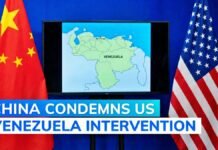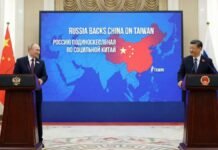
Brasilia: In a significant decision, Brazil has opted against joining China’s Belt and Road Initiative (BRI), marking a major setback for Beijing’s multi-billion-dollar global infrastructure project. Following India’s lead within the BRICS bloc, Brazil becomes the second member to decline joining the initiative, instead choosing to forge a customized partnership with China that aligns with its national priorities.
Brazilian President Luiz Inácio Lula da Silva’s administration conveyed this decision through Celso Amorim, the president’s special adviser for international affairs. “We want a new level of collaboration with China,” Amorim told O Globo, stressing that Brazil seeks beneficial ties without formal BRI commitments. “We are not entering into a treaty,” he emphasized, describing the decision as a move to avoid using Chinese-led projects as “insurance policies” for Brazil’s economic landscape.
Amorim noted Brazil’s interest in finding “synergies” with BRI-linked investment without signing on formally, an approach allowing Brazil to selectively incorporate BRI infrastructure funding into its own strategic projects. “They can call it the Belt and Road, but we will focus on Brazilian-defined priority projects that may or may not align with Chinese interests,” Amorim stated.
Xi’s November Visit to Brazil Faces a Shift in Focus
China had hoped Brazil’s entry into the BRI would be a highlight of President Xi Jinping’s scheduled visit to Brasilia in November. However, according to the South China Morning Post, Brazil’s economic and foreign ministries remain wary, with officials expressing concern that joining the BRI could strain relations with the United States, especially if the U.S. sees a political shift in 2025.
President Lula, who missed this year’s BRICS summit in Kazan due to an injury, sent his advisers, including Amorim and Chief of Staff Rui Costa, to Beijing for preliminary BRI discussions. Upon their return, reports indicated the delegation was “unimpressed” by China’s proposals, signaling skepticism about the initiative’s benefits for Brazil’s immediate development needs.
Brazil’s Decision Amid BRICS Expansion
BRICS, originally comprised of Brazil, Russia, India, China, and South Africa, recently welcomed new members including Egypt, Ethiopia, Iran, Saudi Arabia, and the UAE. India has long voiced its opposition to the BRI, particularly due to the China-Pakistan Economic Corridor (CPEC) passing through Pakistan-occupied Kashmir (PoK), a region India claims as part of its territory. India has raised concerns over the lack of transparency and potential debt burdens associated with the BRI, citing cases like Sri Lanka’s Hambantota Port, which fell into a 99-year Chinese lease after struggling to repay BRI-linked debt.

Brazil’s stance reflects a growing awareness among nations of the potential risks associated with the BRI model, especially regarding national autonomy and long-term financial health. This decision by Brazil indicates a preference for flexibility and control over international partnerships, particularly those with the potential to influence both domestic priorities and international relations.





















































